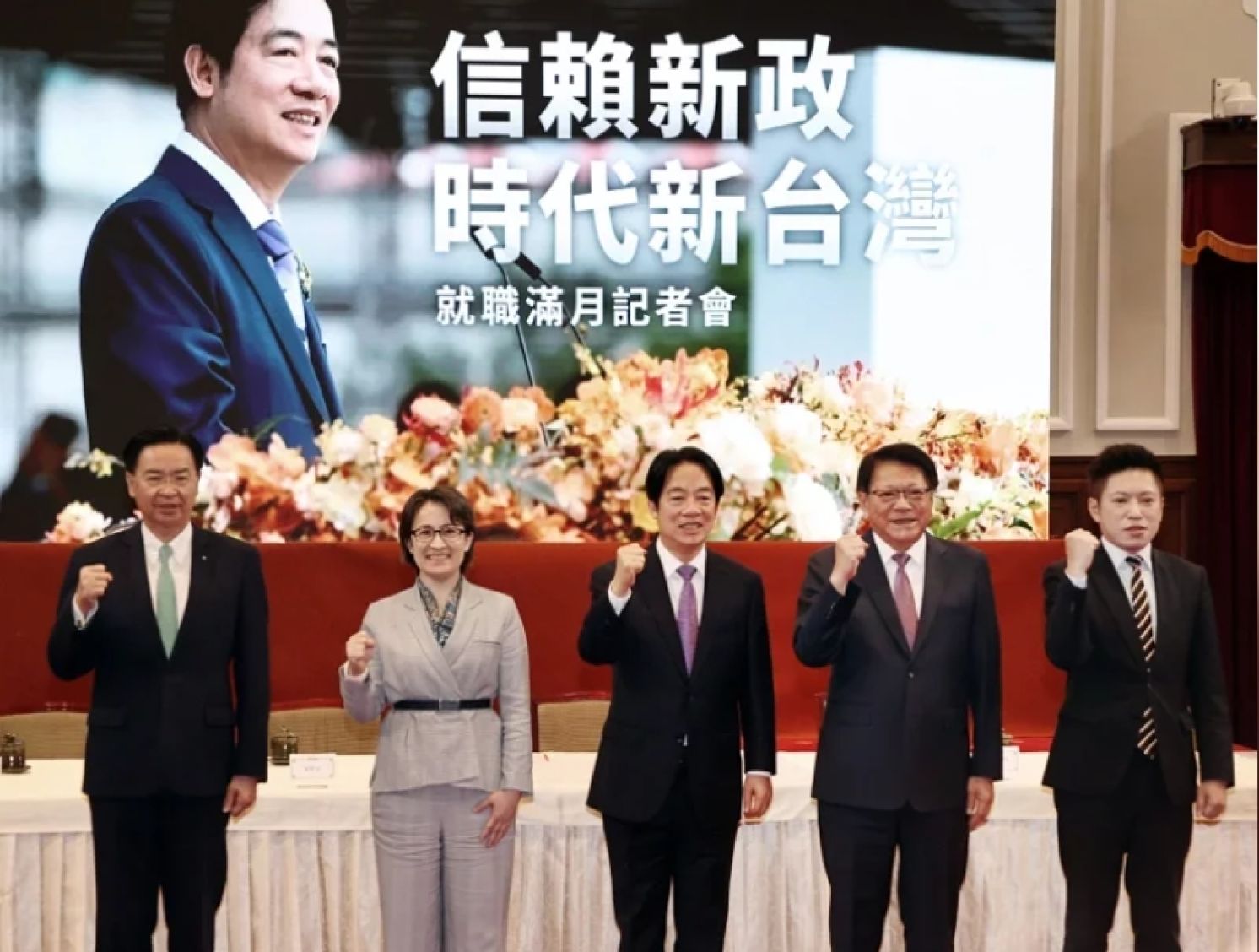
Mistresses Suppress the Queen:Three Committees Sideline the Premier
By Li Chia-Wei
China Times, June 21, 2024
What President Lai Ching-te delivered in the first month of his inauguration was not a report card that satisfied the people, but a shock bomb that the mistress had overpowered the main palace and the premier out of favor. President Lai announced that the Office of the President will establish three major committees: the National Climate Change Response Committee, the Whole-of-Society Defense Resilience Committee, and the Healthy Taiwan Promotion Committee, with the president serving as the convener. It seems that only the premier is turned into a figurehead, but the Legislative Yuan, which is supposed to supervise the Executive Yuan, will in turn only be able to supervise a shadow puppet. President Lai's move undermines the checks and balances between the executive and the legislative branches.
Although the Office of the President argued that there were precedents for the president to establish various committees in the past, the difference was that the temporary task forces in the past only provided advisory opinions, and the heads of the Executive Yuan ministries did not participate. Some senior party and government officials said that President Lai’s move was based on U.S. President Joe Biden’s “Committee on Strengthening Supply Chain Resilience.” However, the United States is a country with a typical presidential system. The heads of federal agencies are members of the president’s cabinet. It is difficult to impose the operation of the U.S. constitutional government on Taiwan as it is out of place. In the future, should heads of ministries and committees listen to the president or the premier? This could trigger a constitutional crisis.
What’s even more strange is that the vice president, vice premier, and several cabinet-level ministers have their respective roles in the three Committees, but not the Premier. This undoubtedly downgrades the status of the premier and makes him more of a policy implementer. In other words, in the future, the Legislative Yuan can only supervise the implementation of the administration but has no role in the decision-making aspect, because the Legislative Yuan has no way of supervising the Committees that make decisions. Does it mean that Article 63 of the Constitution regarding the Legislative Yuan’s right to discuss other important matters of the country is being abolished?
The president has the National Security Council (NSC) that can communicate directly with the heads of relevant ministries. These three Committees could have been managed by the NSC, but President Lai insists on finding a different approach. The possible reason is that President Lai may want to include private citizens in the Committees. Private figures on the three Committees actually participate in and lead major national policies but are not bound by the ethics and obligations of civil servants. There is no way to regulate the avoidance of relevant interests and classified information, and they even bypass the supervision and check and balance of the Legislative Yuan. Such an arrangement is far beyond imagination in the United States, whose Committee on Enhancing Supply Chain Resilience is composed of heads of relevant departments and does not include any private citizens.
Perhaps this reveals why the DPP strongly opposes the expansion of the Legislative Yuan’s investigative power to the private sector. Expansion would mean Lai’s original attempt to allow private decision-makers to bypass legislative oversight failed. After the Legislative Yuan’s investigation and hearing rights were legalized, relevant private citizens must be forced to go to the Legislative Yuan to present their opinions and provide information. This also highlights the need for relevant legislative reform of the Legislative Yuan’s exercise of powers.
In the past, the Democratic Progressive Party (DPP) always liked to criticize the late President Chiang Kai-shek for using the “Temporary Provisions Effective During the Period of National Mobilization for Suppression of the Communist Rebellion” as an excuse to avoid violating the Constitution. But after taking power, the DPP not only followed the same pattern but also intensified it. How ironic! President Lai has established three black organizations just one month after taking office. Who knows if there will be more in the future? No matter how “buildings” are built outside the system, they are all illegal institutions and are destroying the Constitution and disrupting the government. Increasing numbers of more solid illegal constructions will only completely crush the political system as the President becomes more powerful and unchecked!
(The author is an associate researcher at the National Policy Foundation.)
From: https://www.chinatimes.com/newspapers/20240621000584-260109